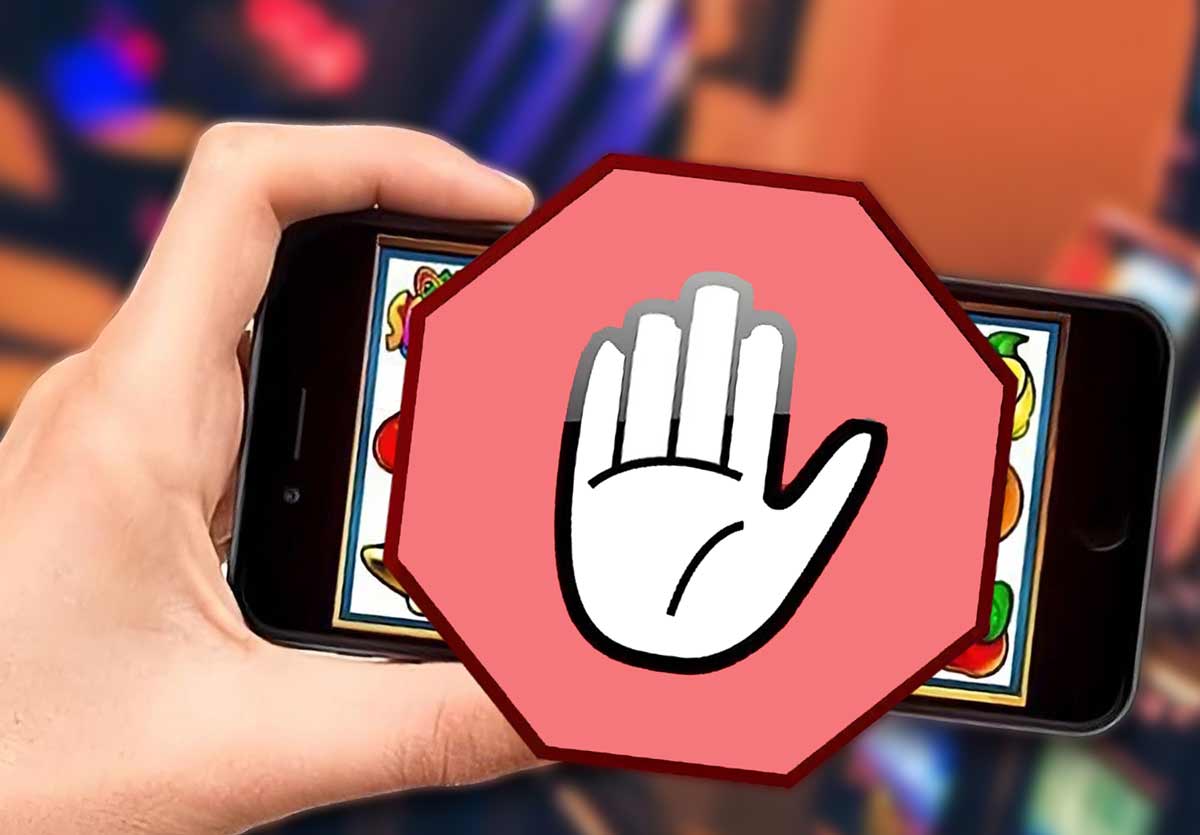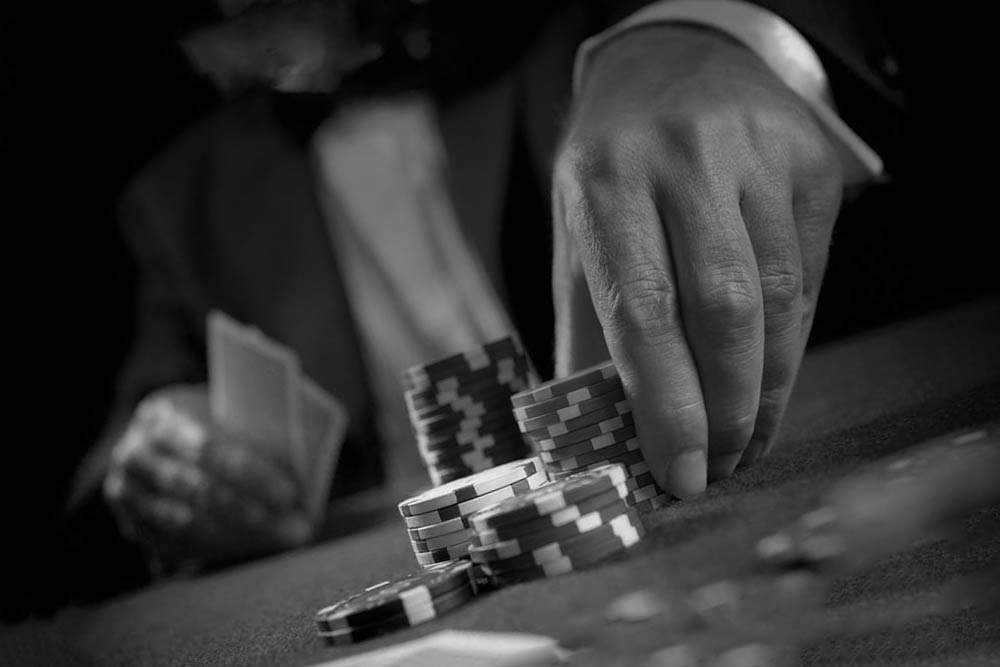
Gambling is generally seen as a socially acceptable activity so long as it is done so in moderation. However, another issue to consider is compulsive gambling. A gambling addiction, if unchecked, may have detrimental effects on a person’s financial condition, relationships, and other elements of their lives.

What Exactly Is Addiction to Gambling?
If you have a problem with gambling, you can have an uncontrolled temptation to gamble in various settings, such as buying lottery tickets, going to casinos, playing slot machines, betting on sports, or gambling online.
It’s possible that the specifics of the kind of gambling you do and how often you do it will differ. But, on the other hand, you won’t have much of a chance to control such conduct. As a result, you will keep gambling even though it might have adverse effects on your relationships, finances, or even your legal standing.
Men make up the vast majority of those who struggle with addictions to gambling. However, this particular form of addiction can also afflict females.
What Are the Signs That Someone Is Addicted to Gambling?
Gambling addiction, on the other hand, may be challenging to disguise. Thus, people who struggle with addiction frequently try to conceal their illness. Nevertheless, you may require regular access to casinos or online gambling pools. Even if you gamble alone in your house when no one else is there, the signs of gambling addiction might show themselves in other parts of your life.
It’s possible that if you have a gambling addiction, you’ll exhibit any, all, or none of the following behaviours:
- a preoccupation with gambling, irrespective of the form it takes
- relying on gambling to improve one’s mood about life, losing control of one’s gaming habits
- gambling at the expense of one’s job or other obligations
- ignoring financial obligations and costs in favour of playing with the money instead
- trading up one’s things to gamble
Taking Money for the Sake of Gambling
“Lying about your gambling habit,” “feeling bad after a gaming session,” and “taking more and bigger risks when playing” are all behaviours associated with problem gambling. As a further result of your gambling addiction, you can also encounter the following problems:

- a breakdown of previously established bonds or connections
- a loss of one’s home, one’s job, one’s automobile, or other valuable personal items
People who have a problem with gambling don’t necessarily bet regularly. However, once they begin gambling, it’s possible that they won’t be able to quit.
Did you know that not only online casino players can become addicted, but also traders. And the latter get addicted to the cryptocurrency itself. So what to do in these cases? To find out, carefully read the article Whip-sawed cryptocurrency traders are seeking therapy for help with addiction

Here Are the 6 Telltale Signs That You’re Addicted to Gambling
People who have progressed to the point where they are considered pathological gamblers exhibit characteristics consistent with the presence of gambling addiction. Here are six potential red flags that you should watch out for.
1. You Have Lied about Your Involvement in Gambling.
Lie to cover up an addiction and the behaviours that are associated with it. This is a crucial habit characteristic, and compulsive gambling is no different. Because the fixation and urge to gamble are so powerful, the individual will go to any lengths to place the next wager. This will typically entail lying to cover up where they are, what they are doing, and what happened to their money. Pathological gamblers will even lie to themselves about their gambling behaviour.
Cognitive dissonance is a phenomenon that can occur in people’s minds at times. Cognitive dissonance occurs when an individual experiences psychological discomfort due to their behaviour that is inconsistent with their values or beliefs regarding how they should behave. This happens when the individual acts in a way that is not in line with how they believe they should be working.
Stopping the “bad” activity, which includes gambling and the behaviours that go hand in hand, would be the most rational thing to do to alleviate this psychological distress. But, on the other hand, addiction defies logical explanation.
Someone addicted to gambling will lie to themselves to justify their conduct, even if the explanations they provide aren’t accurate or don’t make any sense. This standard psychological mechanism exists to alleviate the psychological pain brought on by cognitive dissonance. Problem gamblers, to put it another way, are dishonest with themselves.
A person addicted to gambling may not be a liar in and of themselves. Still, the lying that goes hand in hand with gambling addiction is part of the abnormal psychology and behaviours accompanying gambling addiction.
2. You Bet More Money than You Can Afford to Lose in Gambling.
A person who gambles only sometimes could devote part of their discretionary income to various forms of gaming. However, they will quit when their losses exceed the amount they are ready to invest. Gambling addiction is defined as an inability to exercise self-control or stop gambling. The gambler will continue to gamble even though they have lost more money than they can replace financially. These losses at the casino might put the gambler in debt or put the gambler’s valuables, such as their home or vehicle, in jeopardy.
The losses are considerably more extensive than merely being destitute due to gaming. Gambling addiction typically requires a significant amount of time, and as the gambler devotes a growing amount of time to gambling, other aspects of their life suffer as a result. Their relationships, families, and domestic tasks last on their priority list. They are frequently tardy to work. They fail to show up for meetings and other significant commitments. Or, they could gamble when they are supposed to be sleeping or spending time with their families, such as when they are at work.

The outcomes may be more expensive than they can pay for:
- Stress in Relationships: This is Especially a Problem When the Spouse Learns About the Financial Losses
- Job loss: Due to reduced performance or gambling at work
- Arrest and criminal charges: for illicit activities used to pay the gambling
- Problems with one’s physical health caused by a lack of sleep or enough self-care
Compulsive gambling will continue no matter how much money is lost until the gambler recognizes they have a problem and agrees to get assistance for it.
3. You Take Out Loans to Finance Your Gaming.
Borrowing money for gambling is a significant contributor to the standard financial collapse that problem gamblers experience. First, they will exhaust the conventional means of obtaining financial assistance, such as a credit line, a bank loan, or a second mortgage. After that, they could turn to loans with extremely high-interest rates, such as those offered by credit cards, payday lenders, or even illegal loan sharks.
They are so determined to keep gambling that they are willing to go to almost any extent to gain more money, frequently assuming that “this time” luck will be on their side, and they will be successful in making a fortune.
4. Engaging in Gambling Has a Detrimental Impact on Your Feelings.
Compulsive gambling is a problematic coping strategy, employed in the same way as other kinds of process addiction. It is used to conceal unpleasant feelings and divert and escape from the challenges and demands of daily life.
Even if someone is gambling to suppress their feelings, the activity still has a detrimental impact on their mental health and can result in emotional problems. This is because the action of gambling triggers the synthesis and release of “feel-good” chemicals (neurotransmitters) in the brain, which is a component of the brain’s reward system.
Gambling temporarily relieves a person of unpleasant feelings by elevating their mood for a short period. Gambling activities, in and of itself, could also serve as a pleasant diversion from one’s preoccupation with one’s troubles.
When gambling addicts are not actively participating in the activity, the reward system reduces the amounts of feel-good chemicals to normal or even below-normal levels to make up for the abnormally high levels that gambling causes.
Consequently, those addicted to gambling may have feelings of depression, lethargy, unhappiness, and irritability when they are not gaming. As a result, their emotional state degenerates into dysregulation and disorder.
5. You Continue to Gamble until You Have No More Money.

Even if they end up losing all of their money, pathological gamblers cannot break the cycle of compulsive gambling because they want to gamble and consume their every waking thought.
They can risk losing all of their savings, their wages, the money they spend for rent and groceries, and any other money within their reach without concern for the repercussions of their actions. Likewise, someone addicted to gambling runs the genuine possibility of losing all of their money to the activity.
6. You Continue to Gamble to Make Up for Previous Losses.
“Chasing” is the term used to describe this aspect of gambling addiction. Compulsive gamblers consistently assume that they only need “one more bet” to recoup their previous losses, even though their gambling debts continue to mount. Therefore, they constantly consider the next bet to be the most important one. Thanks to this method, the previous gambling losses they incurred will be made up for, and they will begin to come out ahead.
Compulsive gamblers are motivated to continue gambling not only by the reward system in their brains, which encourages them to keep gambling, but also by the delusional and obsessive notion that “the next bet will be the big winner.” This idea causes them to go to any extent to continue playing.
Talk to your primary care physician or a mental health professional if you or someone you care about may have compulsive gambling problems. They can assist you in locating the information and support that you require. In addition, several organizations make information and treatment alternatives for gambling addiction readily available. They will be able to point you in the direction of nearby or online assistance resources.
